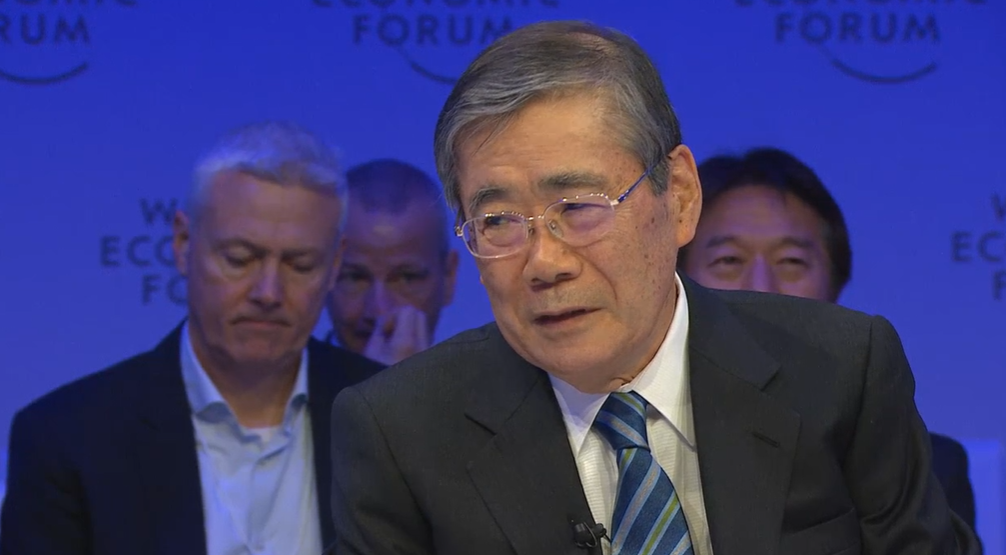
- ARAB NEWS
- 05 Jul 2025

DUBAI: Mitsubishi Heavy Industries’ board Chairman Shunichi Miyanaga told a panel at the World Economic Forum (WEF) Tuesday that private sectors and businesses around the world should invest in carbon neutrality “regardless of the political situation.”
Speaking at the ‘Energy and Rivalry’ panel in Davos, Miyanaga said those looking to achieve their climate goals should be “very consistent to make lives safer.”
“We should continue innovations, consistency, implementation and having a long-term vision,” he added.
At Mitsubishi Heavy Industries, Miyanaga said that energy was a “core business.”
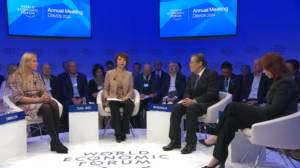
“I think for over five decades or so, energy has been the core business and we have promoted and enhanced multiple pathways to carbon neutrality,” he said. “We have been working very hard in Europe to provide some hydrogen related technologies and in the US, we have been working very hard to supply our studies on the commercialization of the carbon capture utilization and storage systems.”
The Japanese chairman emphasized that investors need to continue their efforts in innovating new technologies towards green energy and continue to think long-term.
“We do hope the new technology will encourage green energies and carbon dioxide emissions become less,” he told WEF. “We need an overall investment that will be secured through some international scheme so that we can devote ourselves to such kind of improvement.”
Also speaking at the panel were Meghan O’Sullivan, Director of the Belfer Center for Science and International Affairs, Kadri Simson, Europe’s Commissioner for Energy and Hardeep Singh Puri, India’s Minister of Petroleum and Natural Gas and Minister of Housing and Urban Affairs.
“In Europe, we have finalized all the legislative bases and have set our targets for 2030. So, we know what needs to be done to achieve a significant share in our overall energy mix to be covered by renewables,” Simson said.
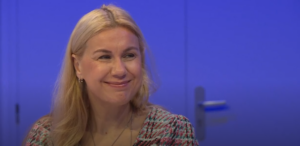
The EU commissioner explained that the Ukraine-Russia war taught them a lesson the past two years, specifically with prioritizing energy saving.
“The lesson learned from the past two years is that despite the fact that European consumers could replace Russian fossil fuels by alternative suppliers, we don’t want to do that because that would create unwanted consequences across the globe,” she said.
As US elections loom at the end of the year, O’Sullivan told WEF that a big portion of the Inflation Reduction Act (IRA) of 2022 is about “domestic competitiveness.”
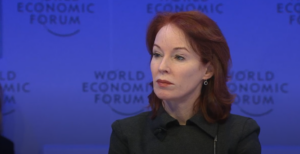
The IRA act is the single largest investment in climate and energy in American history, enabling America to tackle the climate crisis.
“The US really wants to bring more manufacturing back to the US to provide more jobs and a real domestic agenda. But it’s combined with the realization that China has become a real leader in the energy transition,” O’Sullivan said. “That’s going to have a lot of advantages economically and geopolitically to China. The US and its policymakers and lawmakers really want to be competitive with China.”
Indian Minister Puri said that what happens in India is “also important for the rest of the world.”
He explained that at Davos two years ago, at the height of the Russia-Ukraine war, many were worried about the new challenges the conflict brought.
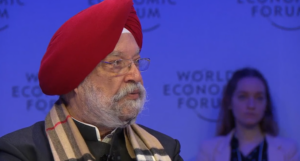
The minster said that India dealt with those challenges “pragmatically.”
“We import 85% of our crude oil and we have to deal with issues of availability, affordability, and sustainability. India had allowed itself to be put into a situation where we were to draw on the same resources, but other parts of the world did not take the kind of position we took,” he said.
The session was hosted on the second day of WEF by Tian Wei from China Global Television Network.